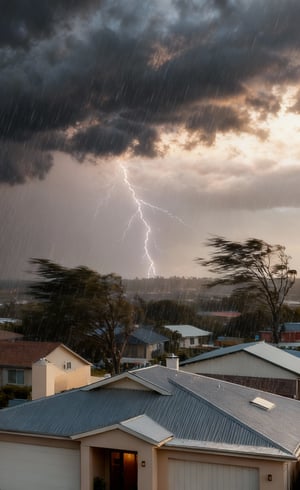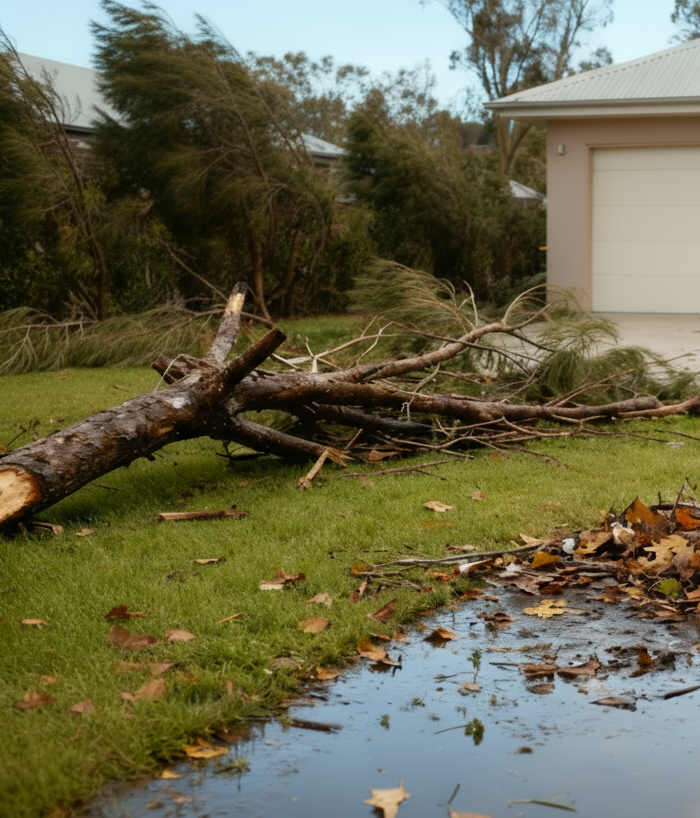Property Insurance When Buying or Selling in Queensland: What you Need to Know
At Cozee, one thing we often see is confusion around when buyers become responsible for insuring their property. The answer might surprise you: it's much earlier than most people think. Queensland's approach is also quite different from states like NSW and Victoria, where risk typically stays with the seller until settlement.
When Insurance Responsibility Actually Transfers to You
Under standard REIQ (Real Estate Institute of Queensland) contract terms, insurance responsibility transfers to the buyer at 5pm on the first business day after the Contract Date. This is often weeks or even months before settlement.
Many buyers assume they only need insurance once the contract becomes unconditional or when they settle. This is a critical misunderstanding that could prove costly.
From that transfer moment forward, if the property is damaged or destroyed by fire, storm, flood, or any other event, you as the buyer are responsible—even though you don't own the property yet and haven't moved in.

Real-world scenario: You sign a contract on Monday. On Wednesday, a severe storm damages the roof. Even though your building and pest inspection hasn't happened yet and you haven't waived your finance condition, you're already responsible for that damage.
What catches most buyers off guard: even if you later terminate the contract validly for another reason (such as a failed building inspection), you may still be liable for damage that occurred while the property was at your risk.
Your Insurance Obligations
As a Buyer
Take out insurance immediately: Arrange adequate building insurance coverage by 5pm on the first business day after signing the contract. Don't wait for the contract to go unconditional.
Ensure adequate coverage: Your policy should cover the full replacement value of the building, not just the purchase price. Check specifically that your policy covers:
- Natural disasters common to Queensland (floods, cyclones, storms)
- Fire and explosion
- Malicious damage
- Your area's specific risks (check Council flood and cyclone mapping)
As a Seller
Maintain your insurance until settlement: Even though risk typically transfers to the buyer early, sellers should keep their insurance active until settlement day. Gaps in coverage can create disputes if damage occurs.
Take reasonable steps to prevent further damage: If the property is damaged while under contract, you're legally obliged to minimise further loss. This might include moving undamaged items, arranging temporary repairs, or securing the property.
What Happens if the Property is Damaged?
The outcome depends on the severity of damage.
Severely Damaged: Unfit for Occupation
If the property becomes so badly damaged it's deemed "unfit for occupation," you may have termination rights under the Property Law Act 1974 (Qld).However, determining whether a property is "unfit for occupation" is a complex legal assessment. It's not simply a matter of whether you want to live there—the threshold is high.
Lesser Damage: You're Still Obligated
If the property is damaged but remains habitable (even if unrepaired), you cannot terminate the contract. You must:
- Proceed to settlement on the scheduled date
- Make a claim on your insurance policy
- Settle regardless of whether repairs have been completed
This is exactly why having your own comprehensive insurance is crucial—it gives you control and financial protection.

The Option of "Seller Risk" Clauses
You might be tempted to add a special condition to your contract that keeps insurance risk with the seller until settlement. On the surface, this seems like a good idea—why should you be responsible for a property you don't yet own? However, this approach can expose you to several significant risks:
- The seller's insurance may be inadequate: If damage occurs but the property remains habitable, disputes can arise about whether the seller must actually complete repairs or merely have insurance in place. You could end up settling on a damaged property with no recourse.
- Your own insurance could be invalidated: Here's a catch many buyers don't anticipate—if you arrange insurance while risk officially sits with the seller, your insurer might refuse to pay out any claims. Their argument? You didn't have an "insurable interest" in the property at the time of damage since the seller was technically responsible. This leaves you in a vulnerable position if the seller's insurance proves inadequate.
- You lose control over outcomes: With your own insurance, if major damage occurs, you can choose to either terminate under the Property Law Act 1974 (Qld) or claim on your policy and proceed. With seller-risk clauses, your only option may be termination.
- You lose important legal protections: Under normal circumstances, the Insurance Contracts Act 1984 (Cth) provides a safety net—if risk has passed to you as the buyer, you're automatically deemed to be covered under the seller's insurance policy (assuming they have one). This gives you backup protection even if you haven't arranged your own cover yet. However, if you change the contract to keep risk with the seller, you lose this statutory protection entirely.
Sticking with Standard Terms
For the reasons above, the standard REIQ position—where risk passes to the buyer early—is actually in your best interest. It gives you:
- Control over your insurance level and provider
- Freedom to choose your coverage based on your risk tolerance
- Clear rights to make insurance claims
- Certainty about who's responsible at each stage
Yes, it means taking out insurance earlier and paying premiums before settlement, but this is a small price for certainty and control.
Practical Steps
For Buyers
- The moment you sign: Contact insurers immediately to arrange coverage starting at 5pm the next business day.
- Before signing: Check Council mapping for flood, bushfire, and cyclone risk zones specific to the property.
- During contract period: Keep proof of insurance and maintain coverage continuously.
- If damage occurs: Document everything, notify your insurer immediately, and seek legal advice before making decisions about termination.
For Sellers
- Keep your policy active: Don't cancel your insurance until after settlement completes
- Know your obligations: If damage occurs, you must take reasonable steps to prevent further loss
- Communicate clearly: If the property is damaged, notify the buyer promptly and document all actions taken to minimise damage
Common Questions
What if I'm buying an investment property? The same rules apply. Insurance responsibility transfers at the same early stage. Arrange landlord insurance (which covers buildings, not just contents) immediately.
Can I claim on the seller's insurance? Only in limited circumstances under Section 50 of the Insurance Contracts Act, and this should never be relied upon as your primary protection.
What if the contract doesn't specify when risk passes? Standard REIQ contracts clearly specify this. If you're using a non-standard contract, have your conveyancer clarify exactly when insurance responsibility transfers.
Do I need contents insurance too? Not until you take possession. Building insurance is the critical requirement during the contract period.
The Bottom Line
Insurance timing in Queensland property transactions catches many buyers off guard. The critical takeaway: arrange comprehensive building insurance immediately after signing your contract—not when it goes unconditional.
For sellers, maintain your coverage right through settlement day and understand your obligations to minimise damage if something goes wrong.
Contact Cozee today for expert advice tailored to your specific circumstances.

